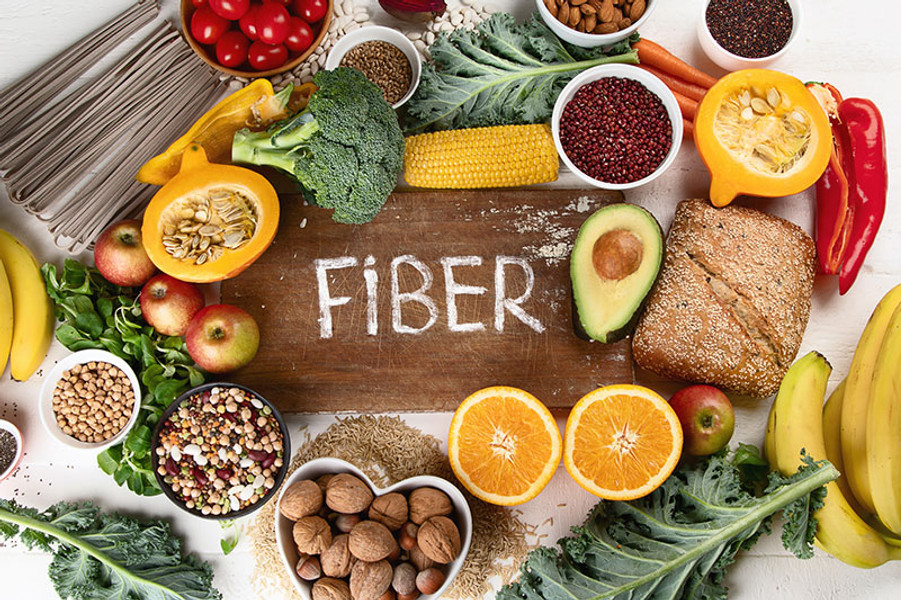Fiber: The Mood-Boosting Nutrient
Posted by Fresh Harvest Market on 12th Jun 2024
Nourishing the Mind: The Surprising Benefits of Dietary Fiber on Mood
The connection between the food we eat and our physical health is widely understood, but did you know that our dietary choices can significantly impact our mood and emotional well-being? Dietary fiber, often celebrated for its digestive benefits, holds a hidden secret - it can have a profound impact on our mental health. In this article, we will delve into the remarkable benefits of dietary fiber on mood and explore how it can be a key ingredient in a recipe for emotional well-being.
The Fiber-Mood Connection
A Gut Feeling
The gut-brain connection is a fascinating area of research in the world of nutrition and psychology. This intricate network of communication pathways allows our digestive system to influence our mental and emotional state. Dietary fiber plays a crucial role in this relationship.
Stable Blood Sugar Levels
Consuming foods rich in dietary fiber, such as whole grains, legumes, fruits, and vegetables, can help regulate blood sugar levels. When your blood sugar remains stable throughout the day, it prevents those dreaded energy crashes and mood swings that often accompany fluctuations in glucose levels.
Enhanced Gut Microbiome
A diet high in fiber promotes the growth of beneficial gut bacteria. These little helpers, known as probiotics, play a significant role in producing neurotransmitters like serotonin, which are closely tied to mood regulation. When your gut microbiome is in good shape, your mental state tends to follow suit.
Mood-Boosting Benefits of Dietary Fiber
Stress Reduction
Fiber-rich foods are associated with reduced stress levels. A diet that includes plenty of fiber can help lower the stress hormone cortisol, making you feel calmer and more in control during challenging situations.
Improved Sleep
Quality sleep is vital for maintaining a good mood. Dietary fiber can positively impact sleep patterns by promoting a sense of fullness and preventing late-night snacking, which can disrupt your sleep cycle.
Anxiety Alleviation
Fiber-rich foods can have anxiolytic effects, meaning they help reduce anxiety. The steady release of energy from high-fiber meals can prevent the jittery feelings often associated with sugary or processed foods.
Practical Tips for Increasing Fiber Intake
- Start with Breakfast: Choose whole-grain cereals, oats, or bran-rich foods to kickstart your day.
- Snack on Fruits and Nuts: Instead of processed snacks, opt for fiber-rich options like apples, berries, and almonds.
- Incorporate Legumes: Lentils, beans, and chickpeas are excellent sources of fiber and can be included in salads, soups, or stews.
- Load Up on Veggies: Make vegetables the star of your meals, ensuring you fill half your plate with them.
- Read Labels: Pay attention to food labels, specifically for the dietary fiber content, when shopping for groceries.
The benefits of dietary fiber extend beyond digestive health to influence our mood and overall well-being. By incorporating fiber-rich foods into your diet, you can help reduce stress, improve your sleep, and alleviate anxiety. The next time you enjoy a meal brimming with whole grains, fruits, vegetables, and legumes, remember that you're not just feeding your body; you're nourishing your mind and emotions as well. A balanced diet that includes an ample supply of dietary fiber can be your secret ingredient for a happier and more contented life.

